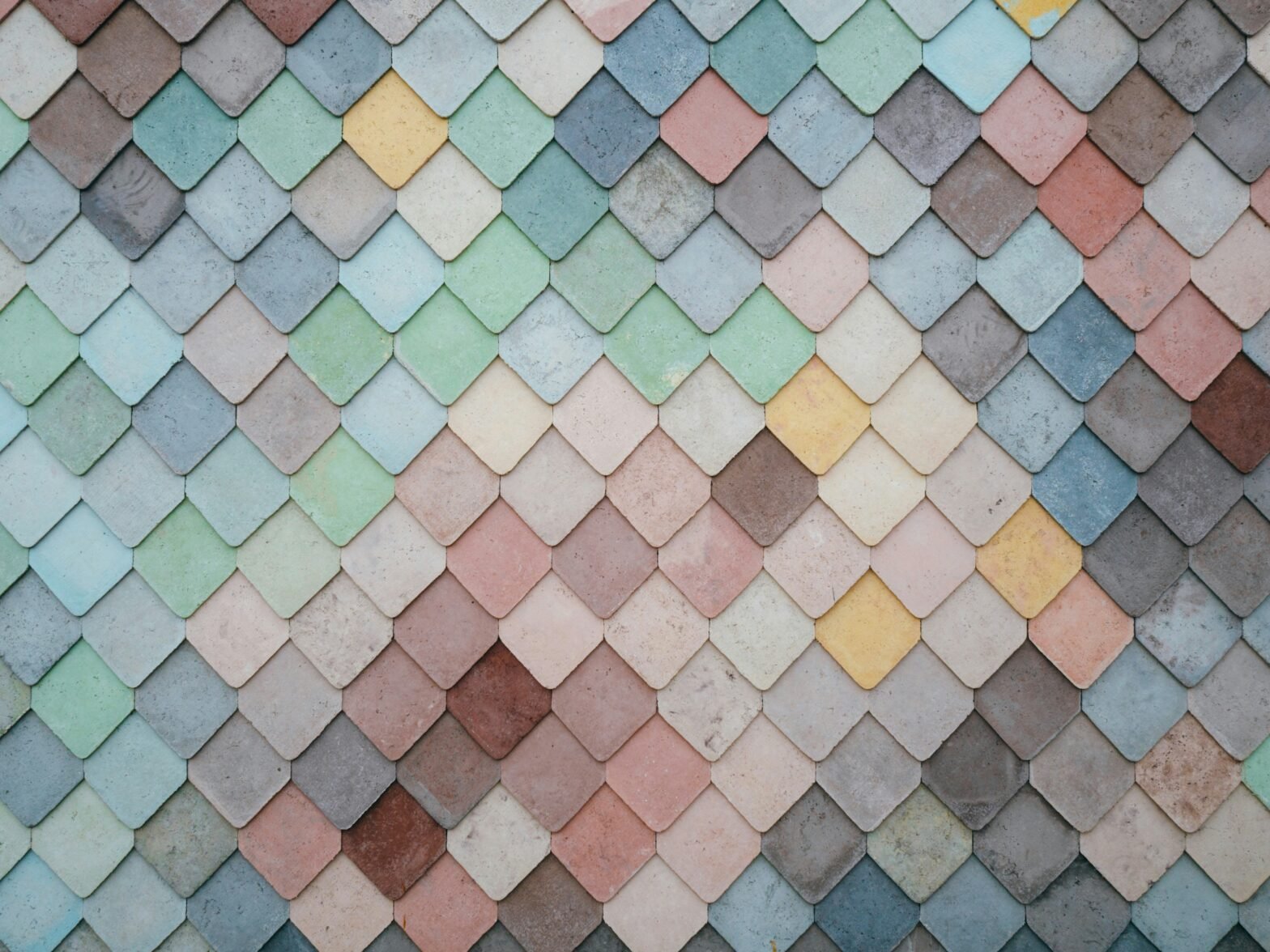As you age, the question of whether your hair color should be lighter or darker becomes an intriguing aspect to consider. Society often associates graying hair with getting older, but does that mean you should stick to lighter shades? On the other hand, darker hair can add depth and maturity to your appearance. In this article, we will explore the factors that might influence your hair color choices as you age, helping you make an informed decision that complements your unique style and personality.

Factors to Consider
When deciding whether your hair color should be lighter or darker as you age, there are several factors you should take into consideration. Each person’s hair journey is unique, but considering these factors can help you make an informed decision that suits your personal preferences and enhances your overall appearance.
Natural Hair Color
One important factor to consider when choosing your hair color is your natural hair color. Some people have naturally lighter hair, while others have darker hair. Working with your natural hair color can provide a harmonious and flattering result that complements your overall look.
Skin Tone
Another crucial element to think about is your skin tone. The right hair color can help enhance your complexion and bring out your natural beauty. Considering your skin’s undertones – whether they’re warm, cool, or neutral – can guide you in selecting a hair color that harmonizes with your skin tone and creates a harmonious and balanced appearance.
Personal Style
Your personal style plays a significant role in determining the best hair color for you. Are you someone who enjoys bold and trendy looks, or do you prefer a more classic and elegant style? Understanding your personal style can help you choose a hair color that aligns with your fashion choices and expresses your individuality.
Hair Health
Lastly, it’s crucial to consider the health of your hair. Healthy hair is essential for achieving the best hair color results. Prioritizing hydration and nourishment through regular conditioning treatments can help maintain strong and vibrant hair. Avoiding excessive bleaching or dyeing can also prevent damage and ensure that your hair remains in optimal condition.
Lighter Hair Color
Opting for a lighter hair color as you age can offer several benefits that can enhance your overall appearance and address common concerns associated with aging.
Youthful Appearance
One advantage of choosing a lighter hair color is that it can create a more youthful appearance. Lighter shades tend to brighten the face and give a fresh, rejuvenated look. By choosing a hair color that is a few shades lighter than your natural color, you can effortlessly achieve a more youthful and vibrant glow.
Softens Facial Features
Lighter hair colors have the remarkable ability to soften and blur sharp facial features. If you have prominent cheekbones or a strong jawline that you’d like to minimize, a lighter hair color can help achieve that effect. The lighter tones create a subtle contrast, making your facial features appear softer and more delicate.
Camouflages Gray Hair
Gray hair is a common concern as we age, and choosing a lighter hair color can help camouflage those pesky grays. Lighter shades can effectively blend with gray hair, providing a natural transition and creating a more seamless appearance. This can help you extend your time between touch-ups or embrace your natural silver strands with grace.
Low Maintenance
Lighter hair colors often require less maintenance compared to darker shades. As your hair grows, the contrast between your natural color and the lighter tones will be less noticeable, reducing the need for frequent touch-ups. This lower maintenance aspect can be a time and cost-effective choice, allowing you to enjoy your lighter hair color with ease.
Versatile Styling Options
Lighter hair colors offer versatility when it comes to styling. From beachy waves to sleek updos, lighter shades can accentuate various hairstyles and provide a beautiful canvas to showcase your personal style. Whether you prefer casual, effortless looks or glamorous, red-carpet-worthy styles, a lighter hair color can adapt to your styling preferences seamlessly.
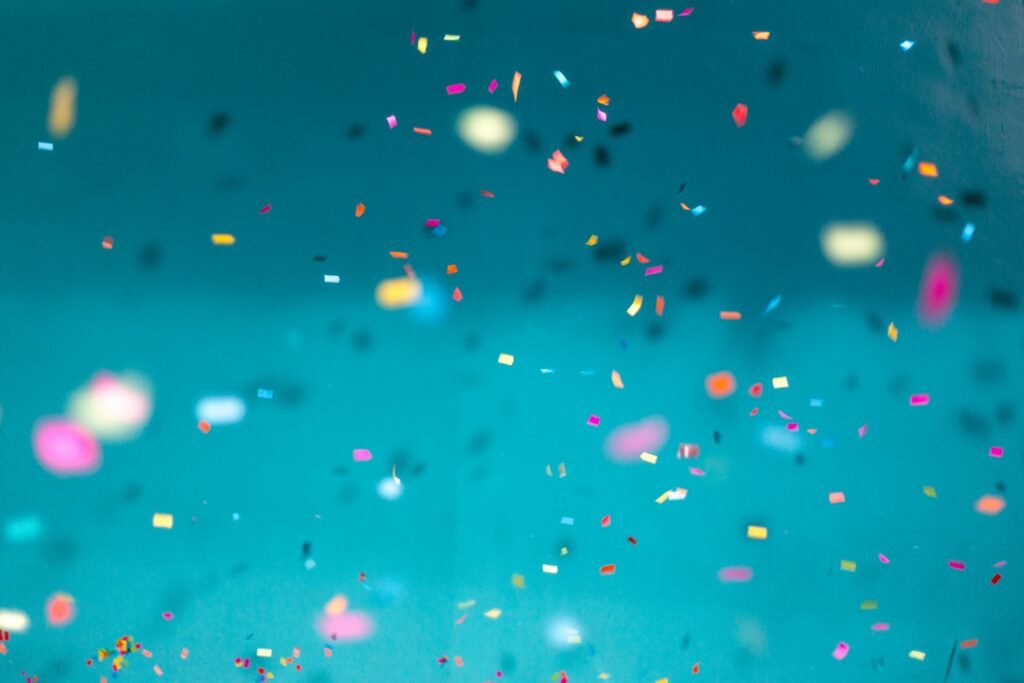
Darker Hair Color
While lighter hair colors have their advantages, darker hair colors can also offer numerous benefits that can enhance your appearance as you age.
Enhances Sophistication
One compelling reason to choose a darker hair color as you age is the sophistication it can add to your overall look. Darker shades exude elegance and can help create a more refined and polished appearance. If you’re drawn to a more sophisticated aesthetic, opting for a darker hair color can be a fantastic choice.
Adds Depth and Shine
Darker hair colors have the ability to add depth and shine to your locks. The richness and intensity of dark shades can make your hair appear healthier and glossier. Whether your hair is naturally dark or you choose to darken it through coloring, the added dimension and reflective qualities can enhance your overall appearance.
Minimizes Hair Damage
Dark hair colors can help minimize the appearance of hair damage, such as split ends or breakage. Lighter hair colors tend to show damage more prominently, while darker shades help conceal imperfections. If you’re concerned about the condition of your hair and want a color that can minimize the look of damage, opting for a darker shade can be a suitable choice.
Blends with Natural Color
Choosing a darker hair color that is closer to your natural color can create a seamless and cohesive look. By selecting a shade that complements your skin tone and harmonizes with your natural hair color, you can achieve a balanced and flattering result. This ensures that your hair color appears natural and enhances your overall appearance.
Matching Hair Color with Skin Tone
Matching your hair color with your skin tone is crucial for achieving a harmonious and flattering look. Here are some considerations based on different skin tones:
Cool Skin Tones
If you have cool undertones in your skin, such as a pink hue, opting for hair colors with cool undertones can complement your complexion. Ash blonde, platinum, cool brown, or black shades can work well with cool skin tones, creating a balanced and harmonious appearance.
Warm Skin Tones
For individuals with warm undertones in their skin, such as yellow or golden hues, hair colors that have warm undertones can enhance their complexion. Honey blonde, caramel, warm brown, or auburn shades can beautifully complement warm skin tones, adding warmth and vibrancy to the overall look.
Neutral Skin Tones
Those with neutral undertones in their skin have the flexibility to experiment with both cool and warm hair colors. Neutral skin tones can carry a wide range of hair colors, from ashy blondes to chocolate browns, allowing for greater versatility and personalization.
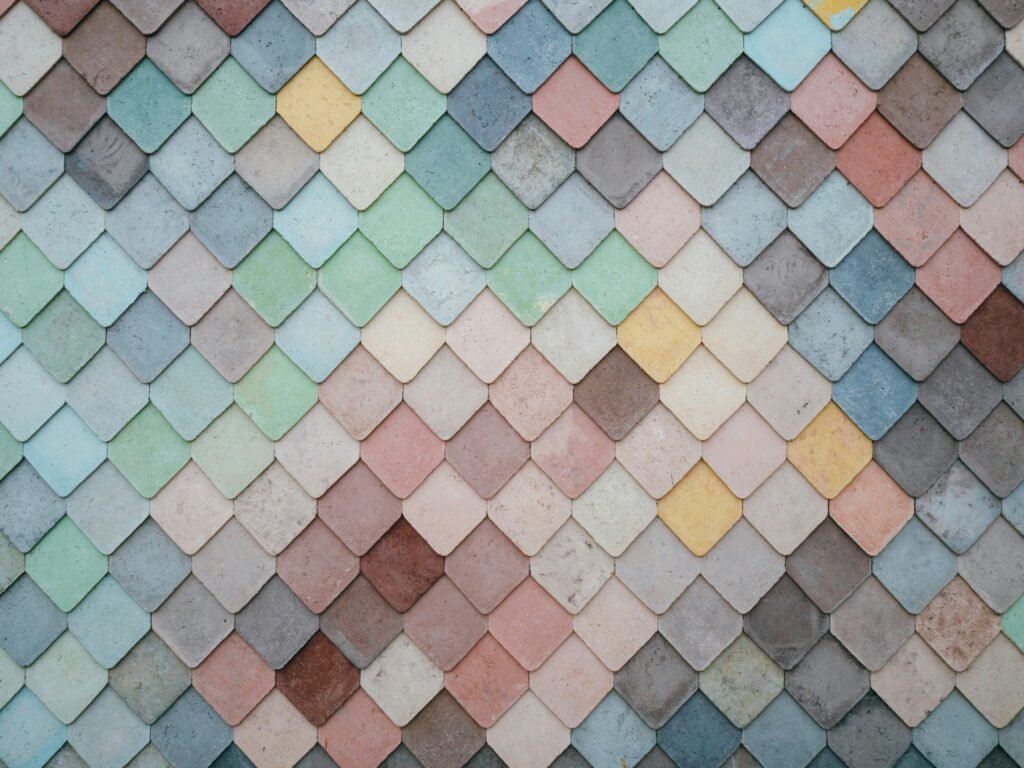
Considering Personal Style
Your personal style is an essential component in determining the best hair color for you. Here are a few considerations based on different style preferences:
Bold and Trendy Look
If you enjoy standing out with bold and trendy fashion choices, you might want a hair color that complements this style. Vibrant colors like platinum blonde, fiery red, or vivid pastels can help you make a statement and showcase your fashion-forward personality.
Classic and Elegant Look
If you prefer a timeless and elegant style, opting for a hair color that exudes sophistication is ideal. Shades like deep browns, warm chestnuts, or luxurious black can help you achieve that classic and sophisticated look that never goes out of fashion.
Natural and Subtle Look
For those who prefer a more natural and subtle approach, choosing a hair color that is close to their natural shade is a great option. This allows you to enhance your hair’s natural beauty and create a look that is effortless and understated yet still beautiful and polished.
Maintaining Hair Health
Maintaining the health of your hair is essential to achieve the best hair color results. Here are some tips to keep your locks in optimal condition:
Hydration and Nourishment
To keep your hair healthy, prioritize hydration and nourishment. Regularly using moisturizing conditioners and hair masks can help replenish moisture and strengthen your strands. Deep conditioning treatments can also help restore vitality to the hair and minimize the potential damage caused by coloring or bleaching.
Avoiding Excessive Bleaching or Dyeing
Excessive bleaching or dyeing can damage your hair and make it more prone to breakage. Avoid overlapping color treatments and give your hair ample time to recover between appointments. Consulting with a professional hairstylist can help you determine the best approach to achieve your desired hair color while minimizing damage.
Regular Trims and Treatments
Regular trims are essential for maintaining healthy-looking hair, as they help prevent split ends and breakage. Additionally, incorporating regular treatments, such as keratin or protein treatments, can further enhance the health and strength of your hair, giving it a vibrant and lustrous appearance.
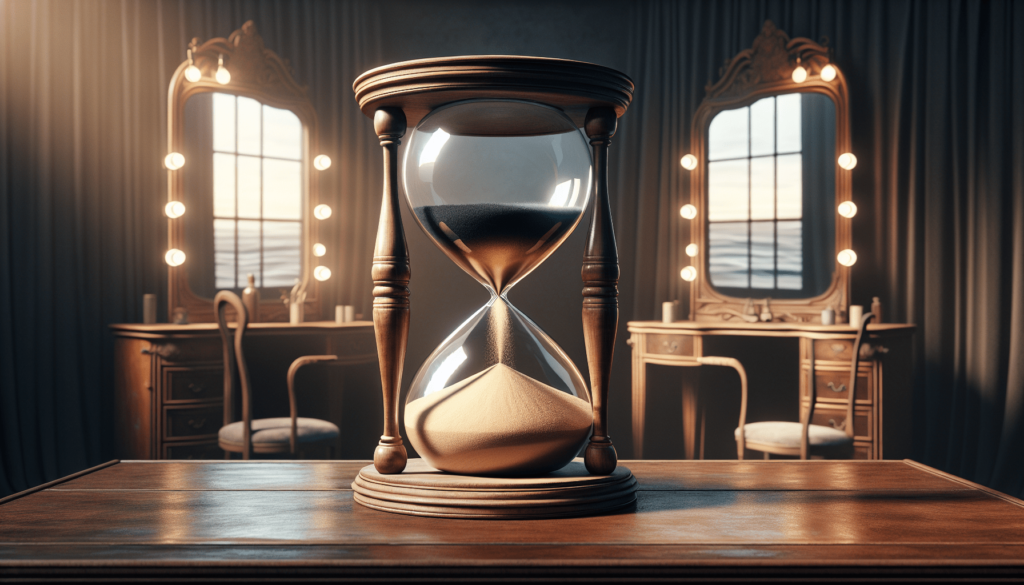
Consulting a Professional
When it comes to choosing the right hair color, seeking professional advice is invaluable. Here’s how a professional can assist you:
Expert Advice
A professional hairstylist can evaluate your hair type, condition, and personal preferences to provide expert advice on the best hair color options for you. They can guide you in achieving your desired look while considering factors such as skin tone, hair health, and personal style.
Color Analysis
Color analysis by a professional can help determine the most flattering hair color for your overall appearance. By assessing your skin tone, eye color, and natural hair color, an experienced colorist can suggest shades that will enhance your features and create a cohesive and balanced look.
Professional Application
Having your hair color professionally applied ensures a high-quality and even result. Professionals have the knowledge and skills to achieve your desired color while minimizing damage and maintaining the integrity of your hair. Their expertise allows for precise color placement, ensuring the most flattering outcome.
Experimenting with Temporary Changes
If you’re unsure about committing to a permanent hair color change, there are temporary options to explore:
Wigs and Hairpieces
Wigs and hairpieces offer a temporary way to experiment with different hair colors without permanently altering your natural hair. They provide flexibility and allow you to try out various styles and colors until you find the one that suits you best.
Temporary Hair Color Products
Temporary hair color products, such as sprays or wash-out dyes, offer a fun and non-committal way to experiment with different hair colors. These products typically last for a few washes and are an excellent option for trying out bolder or more unconventional shades.
Hair Extensions
Hair extensions can instantly add length and volume while also allowing you to experiment with different hair colors. Whether you opt for clip-in extensions or tape-in extensions, they offer versatility and the ability to switch up your look whenever you desire.
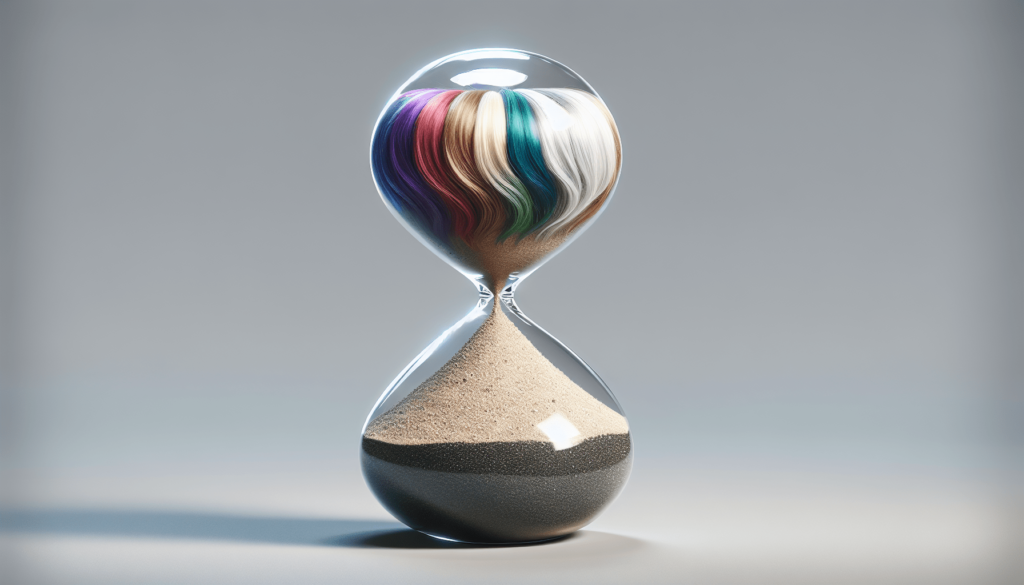
Accepting Natural Changes
As we age, it’s essential to embrace and celebrate our natural changes. Here are some reasons to consider embracing your natural hair color:
Embracing Gray Hair
Gray hair is a natural part of the aging process, and many individuals choose to embrace their silver strands with pride. Gray hair can add a touch of elegance and sophistication to your look, showcasing your confidence and embracing the beauty of aging gracefully.
Confidence in Aging
Choosing not to alter your hair color as you age can be a statement of self-assurance and contentment with your natural self. Embracing your natural hair color can reflect a sense of comfort and acceptance in the aging process, demonstrating that you prioritize inner beauty and self-confidence.
Emphasizing Natural Beauty
By embracing your natural hair color, you can highlight your unique features and individuality. Your natural hair color is a part of what makes you who you are, and choosing to let it shine can emphasize your natural beauty and set you apart from the crowd.
Conclusion
Deciding whether your hair color should be lighter or darker as you age is a personal choice that depends on several factors. Considering your natural hair color, skin tone, personal style, and hair health are crucial in making an informed decision. Whether you choose a lighter hair color to create a youthful appearance or a darker shade to enhance sophistication, consulting with a professional can provide invaluable guidance. Ultimately, the most important factor is to embrace and celebrate your natural beauty while expressing your unique style and confidence at any age.
